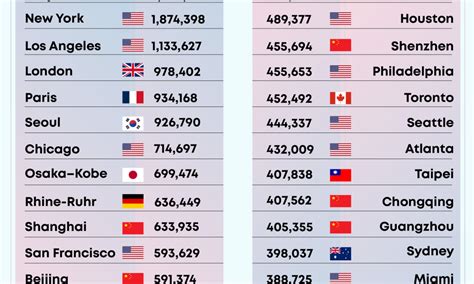
A Motley Fool contributor identifies IonQ as a leading contender in the quantum computing race, citing its technological approach, partnerships, and potential for long-term growth despite current financial realities.
While the quantum computing industry remains in its nascent stages, fraught with technological and financial uncertainties, one analyst believes IonQ stands out as a potentially dominant player. The company’s unique trapped ion technology, strategic partnerships, and early mover advantage are cited as key factors supporting this optimistic outlook. However, the analysis also acknowledges the inherent risks and challenges facing all quantum computing companies, including IonQ, such as substantial ongoing losses and the long timeline for achieving profitability.
IonQ distinguishes itself through its use of trapped ion technology, a method that utilizes individual ions suspended in electromagnetic fields to represent and manipulate qubits – the fundamental units of quantum information. Unlike superconducting qubits, another prominent approach, trapped ion qubits are known for their high fidelity and long coherence times, meaning they can maintain quantum states for extended periods, reducing errors in computations. According to the original article, “IonQ uses trapped ions, a technology that offers superior fidelity and coherence compared to superconducting qubits,” positioning it favorably in the quest for scalable and fault-tolerant quantum computers. The company’s quantum computers are accessible through cloud platforms like Amazon Braket, Microsoft Azure Quantum, and Google Cloud Marketplace. This cloud accessibility allows researchers, developers, and businesses to experiment with and utilize IonQ’s quantum processing units (QPUs) without the need for expensive on-site hardware.
The article highlights IonQ’s continuous efforts to improve its quantum computing power, as measured by algorithmic qubits (#AQ). The more algorithmic qubits a quantum computer possesses, the more complex and computationally demanding problems it can potentially solve. IonQ has consistently increased its #AQ, demonstrating advancements in its hardware and software capabilities. As noted in the original article, IonQ anticipates further advancements in its quantum capabilities, underscoring its commitment to innovation and technological progress. The company’s roadmap involves scaling its systems and improving the quality of its qubits to tackle increasingly complex calculations that are beyond the reach of classical computers.
Partnerships play a crucial role in IonQ’s strategy. Collaborations with leading technology companies such as Amazon, Microsoft, and Google enable IonQ to leverage existing cloud infrastructure and reach a broader customer base. These partnerships provide IonQ with access to vast resources, including software development tools, cloud computing platforms, and potential customers, accelerating the adoption and utilization of its quantum computing technology. The article suggests that these alliances are vital for IonQ to establish a strong foothold in the market and compete effectively with other quantum computing companies. “These partnerships not only validate IonQ’s technology but also provide valuable distribution channels and potential revenue streams,” according to the analyst.
Despite its technological strengths and strategic partnerships, IonQ faces significant financial challenges. Like many early-stage technology companies, IonQ is currently operating at a loss, investing heavily in research and development to advance its quantum computing capabilities. The article acknowledges the company’s substantial ongoing losses, raising concerns about its long-term financial sustainability. Investors need to carefully consider IonQ’s financial position and its ability to secure additional funding to support its growth initiatives. The timeline for achieving profitability in the quantum computing industry is uncertain, and IonQ may require significant capital infusions to remain competitive.
The quantum computing industry itself is highly speculative and subject to rapid technological advancements. New qubit modalities, algorithmic breakthroughs, or unforeseen technological hurdles could significantly alter the competitive landscape. Investors should be aware of the risks associated with investing in quantum computing companies and conduct thorough due diligence before making any investment decisions. The article emphasizes the speculative nature of the industry, warning investors to carefully assess the potential risks and rewards.
Moreover, the practical applications of quantum computing are still largely theoretical. While quantum computers hold the promise of revolutionizing fields such as drug discovery, materials science, and financial modeling, these applications are not yet fully realized. The development of quantum algorithms and software tools is essential to unlock the full potential of quantum computing. The article acknowledges the need for further advancements in quantum software and algorithms to translate theoretical capabilities into practical solutions. “While the potential of quantum computing is immense, it will take time and effort to develop the necessary software and algorithms to fully harness its power,” it states.
IonQ’s leadership team and their expertise in quantum physics and engineering are considered a valuable asset. The company’s founders and key executives have a strong track record in quantum research and development, providing credibility and strategic direction. Their deep understanding of the underlying technology and their ability to attract and retain top talent are essential for IonQ to maintain its competitive edge.
Furthermore, the increasing interest and investment in quantum computing from governments and private companies worldwide are creating a favorable environment for IonQ. Governments are recognizing the strategic importance of quantum computing and are investing heavily in research and development programs to secure a leading position in this emerging field. Private companies are also exploring the potential applications of quantum computing and are partnering with quantum computing companies like IonQ to gain a competitive advantage. The analyst concludes that the growing demand for quantum computing solutions will drive growth and innovation in the industry, benefiting companies like IonQ that are at the forefront of this technological revolution.
The comparison between IonQ’s trapped ion technology and the superconducting approach is a recurring theme in assessing the company’s potential. Superconducting qubits, used by companies like IBM and Google, have achieved significant scale but are often challenged by lower fidelity and shorter coherence times compared to trapped ion qubits. However, superconducting qubits have also seen rapid advancements, and the best technology for specific applications may vary. The original article suggests that the “superior fidelity and coherence” of trapped ion qubits give IonQ a distinct advantage in certain computational tasks, potentially making it a more suitable choice for complex scientific simulations and optimization problems.
IonQ’s cloud-based accessibility model is another key differentiator. By making its quantum computers available through the cloud, IonQ eliminates the need for customers to invest in and maintain their own quantum hardware. This lowers the barrier to entry for researchers, developers, and businesses, allowing them to experiment with quantum computing without significant upfront costs. The cloud-based model also enables IonQ to remotely manage and update its systems, ensuring that customers always have access to the latest technology. The ease of access and scalability offered by the cloud are essential for driving the adoption of quantum computing and expanding IonQ’s customer base.
The company’s focus on algorithmic qubits (#AQ) as a performance metric is also noteworthy. While the number of physical qubits is often cited as a measure of quantum computer size, #AQ provides a more relevant indication of a quantum computer’s ability to solve real-world problems. Algorithmic qubits take into account the quality of the qubits and their ability to perform complex calculations with minimal errors. By focusing on #AQ, IonQ is emphasizing the practical utility of its quantum computers, rather than just the raw number of qubits. This performance-centric approach aligns with the needs of customers who are seeking solutions to specific computational challenges.
IonQ’s manufacturing strategy also contributes to its potential for dominance. The company designs and manufactures its own trapped ion quantum processors, giving it greater control over the entire hardware stack. This vertical integration allows IonQ to optimize its systems for performance and reliability, and to rapidly iterate on new designs. The ability to control the manufacturing process is a significant advantage, enabling IonQ to customize its hardware to meet specific customer requirements and to protect its intellectual property.
The company’s commitment to open-source software and collaboration is also a positive sign. IonQ actively contributes to the development of quantum software tools and libraries, making it easier for developers to build applications for its quantum computers. This open-source approach fosters innovation and collaboration within the quantum computing community, accelerating the development of new quantum algorithms and applications. By promoting open standards and collaboration, IonQ is helping to create a vibrant ecosystem around its quantum computing platform.
However, the path to quantum computing dominance is not without its obstacles. IonQ faces intense competition from other quantum computing companies, including IBM, Google, Rigetti Computing, and PsiQuantum. These companies are pursuing different qubit modalities and have their own strengths and weaknesses. The competitive landscape is constantly evolving, and it is difficult to predict which technology will ultimately prevail. The original article acknowledges the intense competition in the quantum computing industry and cautions investors to carefully evaluate the relative strengths and weaknesses of each company.
The scalability of trapped ion technology is another potential challenge. While trapped ion qubits offer high fidelity and long coherence times, scaling up the number of qubits in a trapped ion quantum computer is technically complex. IonQ is actively working on solutions to overcome these scalability challenges, such as using advanced microfabrication techniques and developing novel ion trap designs. However, it remains to be seen whether trapped ion technology can ultimately achieve the same level of scalability as superconducting qubits.
The development of practical quantum algorithms and applications is also a critical factor. Even with powerful quantum computers, it is necessary to have efficient algorithms that can solve real-world problems faster than classical computers. The development of quantum algorithms is a complex and time-consuming process, requiring expertise in both quantum physics and computer science. IonQ is investing in research and development to create new quantum algorithms and to adapt existing classical algorithms for quantum computers.
In summary, while IonQ’s financial performance remains a concern, and the industry is still highly speculative, the company’s trapped ion technology, strategic partnerships, and early-mover advantage position it as a potential leader in the quantum computing space. Its focus on algorithmic qubits, cloud accessibility, and vertical integration further enhance its competitive edge. However, investors should carefully consider the risks and challenges associated with investing in quantum computing companies and conduct thorough due diligence before making any investment decisions. The long-term success of IonQ will depend on its ability to overcome technological challenges, secure additional funding, and develop practical applications for its quantum computers. The analyst’s overall assessment paints a cautiously optimistic picture, emphasizing the potential for significant returns but also highlighting the inherent risks and uncertainties. The company’s technology, partnerships, and strategy suggest a path towards dominance, but execution and market conditions will ultimately determine its fate.
Frequently Asked Questions (FAQ)
1. What makes IonQ’s quantum computing technology unique compared to other companies?
IonQ utilizes trapped ion technology, which uses individual ions suspended in electromagnetic fields to represent qubits. According to the original article, “IonQ uses trapped ions, a technology that offers superior fidelity and coherence compared to superconducting qubits.” This approach is known for its high fidelity and long coherence times, allowing for more accurate and stable quantum computations compared to superconducting qubits used by companies like IBM and Google. The higher fidelity and coherence can lead to more reliable results, especially in complex calculations. The company also designs and manufactures its own trapped ion quantum processors, giving it greater control over the entire hardware stack. This vertical integration allows IonQ to optimize its systems for performance and reliability, and to rapidly iterate on new designs.
2. How does IonQ’s partnership with major cloud providers like Amazon, Microsoft, and Google benefit the company?
IonQ’s partnerships with Amazon Braket, Microsoft Azure Quantum, and Google Cloud Marketplace are crucial for several reasons. First, it allows IonQ to leverage existing cloud infrastructure, reaching a broader customer base without the need for extensive in-house infrastructure development. Second, these partnerships provide access to valuable software development tools, cloud computing platforms, and potential customers. As noted in the original article, “These partnerships not only validate IonQ’s technology but also provide valuable distribution channels and potential revenue streams.” This expanded reach and resource access can accelerate the adoption and utilization of IonQ’s quantum computing technology, increasing its visibility and market penetration. Third, cloud accessibility allows researchers, developers, and businesses to experiment with and utilize IonQ’s quantum processing units (QPUs) without the need for expensive on-site hardware. This lowers the barrier to entry for potential users and fosters innovation.
3. What are the main financial challenges facing IonQ, and how might they impact its long-term growth?
Like many early-stage technology companies, IonQ is currently operating at a loss, investing heavily in research and development to advance its quantum computing capabilities. The article acknowledges the company’s substantial ongoing losses, raising concerns about its long-term financial sustainability. IonQ requires significant capital infusions to remain competitive. The timeline for achieving profitability in the quantum computing industry is uncertain, and IonQ may require significant capital infusions to remain competitive. Investors need to carefully consider IonQ’s financial position and its ability to secure additional funding to support its growth initiatives.
4. How is IonQ’s performance measured in terms of algorithmic qubits (#AQ), and why is this metric important?
IonQ emphasizes algorithmic qubits (#AQ) as a performance metric. While the number of physical qubits is often cited, #AQ provides a more relevant indication of a quantum computer’s ability to solve real-world problems. Algorithmic qubits take into account the quality of the qubits and their ability to perform complex calculations with minimal errors. By focusing on #AQ, IonQ emphasizes the practical utility of its quantum computers, rather than just the raw number of qubits. This performance-centric approach aligns with the needs of customers who are seeking solutions to specific computational challenges. The more algorithmic qubits a quantum computer possesses, the more complex and computationally demanding problems it can potentially solve.
5. What are the main risks associated with investing in IonQ and the quantum computing industry in general?
The quantum computing industry is highly speculative and subject to rapid technological advancements. New qubit modalities, algorithmic breakthroughs, or unforeseen technological hurdles could significantly alter the competitive landscape. Investors should be aware of the risks associated with investing in quantum computing companies and conduct thorough due diligence before making any investment decisions. The article emphasizes the speculative nature of the industry, warning investors to carefully assess the potential risks and rewards. Moreover, the practical applications of quantum computing are still largely theoretical. While quantum computers hold the promise of revolutionizing fields such as drug discovery, materials science, and financial modeling, these applications are not yet fully realized.
Expanded Analysis and Context
The assessment of IonQ as a potential leader in quantum computing warrants a deeper exploration of the quantum computing landscape, the technological nuances of trapped ion technology, and the broader implications of quantum computing for various industries.
The Quantum Computing Landscape: A Nascent Industry
Quantum computing is not just a technological advancement; it’s a paradigm shift in computation. Unlike classical computers that use bits representing 0 or 1, quantum computers leverage qubits, which can exist in a superposition of both states simultaneously. This, coupled with quantum entanglement, allows quantum computers to perform certain calculations exponentially faster than classical computers.
However, the field is still in its infancy. Many technological hurdles remain, including:
- Qubit Stability (Coherence): Maintaining the quantum state of qubits is challenging. They are susceptible to environmental noise, leading to decoherence and errors.
- Scalability: Building quantum computers with a large number of qubits while maintaining high fidelity is difficult.
- Error Correction: Quantum error correction is crucial to mitigate errors during computation, but it requires significant overhead in terms of additional qubits.
- Algorithm Development: Many quantum algorithms are still theoretical. Developing practical algorithms that can outperform classical algorithms for real-world problems is essential.
The competitive landscape is crowded with companies and research institutions vying for dominance. These can be broadly categorized based on the qubit technology they employ:
- Superconducting Qubits: Used by IBM, Google, and Rigetti Computing, this approach is relatively mature and has achieved significant qubit counts. However, superconducting qubits often suffer from shorter coherence times.
- Trapped Ion Qubits: Used by IonQ, this technology offers higher fidelity and longer coherence times but faces scalability challenges.
- Photonic Qubits: PsiQuantum is pursuing this approach, which uses photons as qubits. Photonic qubits are less susceptible to noise but require complex optical systems.
- Neutral Atom Qubits: ColdQuanta and Atom Computing are developing quantum computers based on neutral atoms. This approach combines some advantages of both trapped ions and superconducting qubits.
Trapped Ion Technology: Advantages and Challenges
IonQ’s choice of trapped ion technology is a key differentiator. The advantages of this approach include:
- High Fidelity: Trapped ion qubits exhibit high fidelity, meaning they can perform quantum operations with low error rates. This is crucial for complex calculations that require many operations.
- Long Coherence Times: Trapped ion qubits can maintain their quantum state for relatively long periods, reducing the impact of decoherence.
- All-to-All Connectivity: In trapped ion systems, qubits can be easily connected to each other, allowing for flexible and efficient quantum algorithms.
- Identical Qubits: All ions are naturally identical, leading to uniform qubit performance and simplifying calibration and control.
However, trapped ion technology also faces challenges:
- Scalability: Increasing the number of trapped ions in a system is technically complex. The interactions between ions can become difficult to control as the system grows.
- Speed: Quantum operations in trapped ion systems can be slower compared to superconducting qubits.
- System Size: Trapped ion systems can be relatively large and require complex vacuum systems and control electronics.
IonQ is actively working on solutions to address these challenges. These include:
- Microfabricated Ion Traps: Using advanced microfabrication techniques to create compact and scalable ion traps.
- Quantum Communication Links: Developing methods to connect multiple ion trap modules to create larger quantum computers.
- Optimized Control Systems: Improving the speed and precision of quantum operations through advanced control electronics and software.
The Role of Partnerships
IonQ’s strategic partnerships with major cloud providers are essential for its long-term success. These partnerships provide several benefits:
- Access to Infrastructure: Cloud providers offer vast computing resources and infrastructure, allowing IonQ to focus on developing its core quantum technology.
- Distribution Channels: Cloud providers have established customer bases and marketing channels, enabling IonQ to reach a wider audience.
- Software Ecosystem: Cloud providers offer software development tools and platforms, making it easier for developers to build applications for IonQ’s quantum computers.
- Validation and Credibility: Partnerships with leading technology companies validate IonQ’s technology and enhance its credibility in the market.
However, it’s important to note that these partnerships are not exclusive. Cloud providers often work with multiple quantum computing companies, giving customers access to a range of different quantum computing platforms.
Financial Considerations
The financial challenges facing IonQ are typical for early-stage technology companies in capital-intensive industries. The company needs to invest heavily in research and development, manufacturing, and marketing to compete effectively.
Key financial considerations include:
- Revenue Generation: IonQ needs to generate revenue from its quantum computing services to become financially sustainable. This can be achieved through subscription fees, usage-based pricing, or custom solutions for specific customers.
- Funding: IonQ may need to raise additional capital through equity or debt financing to support its growth initiatives. The ability to secure funding will depend on its technological progress, market traction, and overall economic conditions.
- Cost Management: IonQ needs to manage its costs effectively to minimize losses and conserve cash. This includes optimizing its research and development spending, streamlining its manufacturing processes, and controlling its operating expenses.
The Impact of Quantum Computing
The potential applications of quantum computing are vast and transformative. Some key areas where quantum computing could have a significant impact include:
- Drug Discovery: Quantum computers can simulate the behavior of molecules and materials with unprecedented accuracy, accelerating the discovery of new drugs and materials.
- Materials Science: Quantum simulations can help design new materials with specific properties, such as high-temperature superconductors or lightweight composites.
- Financial Modeling: Quantum algorithms can optimize investment portfolios, detect fraud, and manage risk more effectively.
- Optimization: Quantum computers can solve complex optimization problems that are intractable for classical computers, such as logistics, supply chain management, and scheduling.
- Cryptography: Quantum computers could break existing encryption algorithms, posing a threat to cybersecurity. However, quantum cryptography also offers new methods for secure communication.
- Artificial Intelligence: Quantum machine learning algorithms could accelerate the training of AI models and improve their performance.
However, it’s important to note that these applications are still in the early stages of development. Significant research and development are needed to translate theoretical capabilities into practical solutions.
Conclusion
IonQ’s trapped ion technology, strategic partnerships, and focus on algorithmic qubits position it as a potential leader in the quantum computing space. However, the company faces significant technological, financial, and competitive challenges. The quantum computing industry is still in its infancy, and the path to commercialization is uncertain.
Investors should carefully consider the risks and challenges associated with investing in quantum computing companies and conduct thorough due diligence before making any investment decisions. The long-term success of IonQ will depend on its ability to overcome technological hurdles, secure additional funding, and develop practical applications for its quantum computers. While IonQ’s innovations and focus areas are promising, the reality of the marketplace will ultimately decide if the company can be a leader in the quantum computing revolution.









